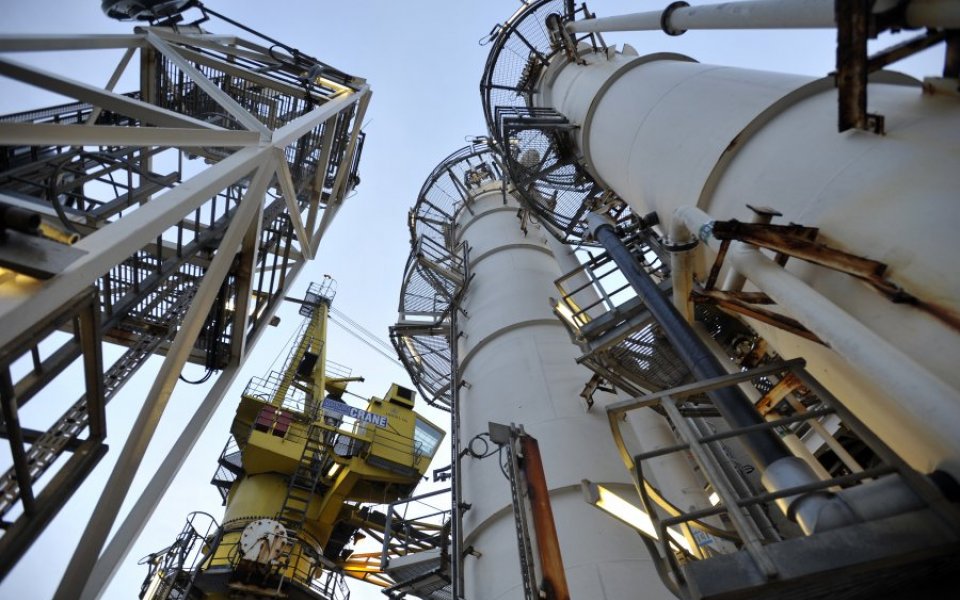Government on the defensive as North Sea suffers through another oil price slump

The government was forced to defend its efforts to shore up the British oil industry yesterday, as record US stocks sent the price of Brent crude oil falling below $30 a barrel in late evening trading.
During Prime Minister's Questions (PMQs), Sir Alan Duncan, a former oil trader, asked Prime Minister David Cameron to launch an "urgent review across Whitehall to assess the effects of continuing low oil prices on our economy beyond and in particular work out how we can avoid the destruction of our own oil industry in the North Sea".
Duncan said:
Thirty dollar oil is great for petrol prices, but it is potentially catastrophic in other respects," Duncan said. "If it goes on like this, we risk seeing regimes under pressure, dramatic corporate failures and financial default, enormous financial transfers out of our markets to pay for other countries' deficits, a possible collapse in share prices and dividends for pensions, and a liquidity problem in our banking sector.
Cameron said Duncan made "an important point", but added that plummeting oil prices have a "highly beneficial effect" for "constituents who are able to fill up their cars for less than £1 a litre".
"I think a low oil price basically is good for the British economy, as an economy that is a substantial manufacturing and production economy," Cameron added. "But of course there are other consequences, and he named many of them, and we need to look very carefully at how we can help our own oil and gas industry."
Read more: Oil could spike at $500 on a Saudi-Iran war
The government has come under increased pressure in recent days to spell out its support for the oil and gas industry in the North Sea, which has already seen over 65,000 jobs cut since the summer of 2014.
Economics Director for Oil & Gas UK, Mike Tholen told City A.M.:
Job losses will rise throughout 2016. The sector is doing everything it can to cut costs and there may be further mergers to try and drive down overheads.
According to Oil & Gas UK the cost to operate in the UK’s North Sea has doubled in the last five years.
Spending on new projects is forecast to fall by £3-4bn per year over the next three years.
A spokesperson for Oil and Gas UK said: “When the oil price was $50, 20 per cent of the oil and gas we produced wasn’t making any profit. Today, at around $30, we really are facing an uphill struggle.”
Alexander Kemp, professor of petroleum economics and head of Aberdeen University's Business School, told City A.M.:
The local economy is suffering and the loss to Scottish GDP is quite significant. The banks have been more conservative since 2008 and haven’t been willing to renew loans.
Earlier this week, SNP energy spokesman Callum McCaig wrote to energy secretary Amber Rudd off the back of news that BP was cutting another 600 jobs from its North Sea operations.
"The news will affect hundreds, perhaps thousands of people across Aberdeen," McCaig wrote. "This news is evidence that the tough market conditions of the oil and gas industry are affecting all businesses in the region, no matter how big or small."
McCaig also asked Rudd "what steps, if any, the government is taking to mitigate job losses in the oil and gas industry".
City A.M. understands that Rudd has yet to respond to the letter, but a government spokesperson said yesterday: "The UK’s oil and gas industry supports thousands of jobs and we want to make sure it’s in the best possible position to manage this challenging period.
"We can’t control the price of oil – but we announced a package of support in the March budget worth £1.3bn to the sector, including reducing headline tax rates and introducing a new investment allowance to reward companies investing in the UK Continental Shelf.
"We delivered on the Wood Review recommendations and established the Oil and Gas Authority, and set out our strategy to maximise economic recovery of the UK continental shelf through better collaboration between companies and improved cost-efficiency.
"We look forward to the industry capitalising on this, to deliver efficiencies and make the industry more robust now and for the future."